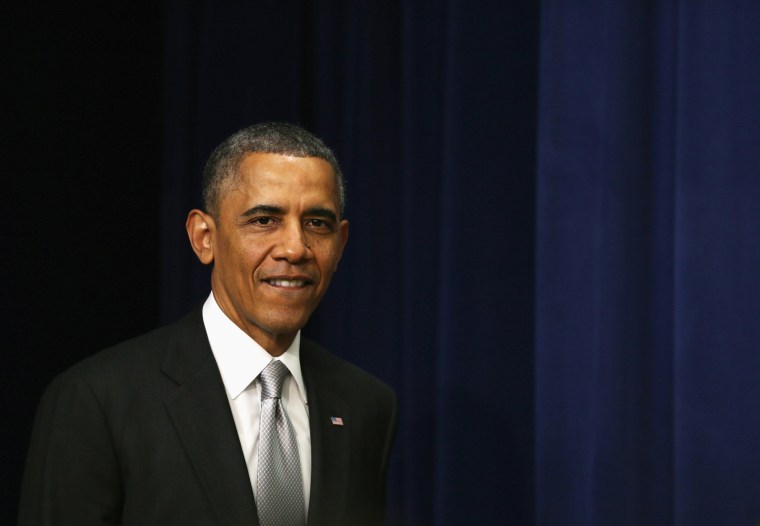There's generally more than one side to every story. And when it comes to health care, Americans have heard one side for the last several weeks: the side that emphasizes the awful rollout of the Affordable Care Act's open-enrollment period and the assorted horror stories that enjoyed some time in the spotlight.
President Barack Obama is set to defend his health reform law Tuesday, his second major attempt at damage control in just two months. He'll kick off a campaign to talk up the benefits of the 2010 law, which was designed to get health insurance to the more than 40 million Americans who don't have any, curb what the administration terms abusive practices of the insurance industry and take the first steps to better coordinating medical care.
Politico added that the public can expect "a coordinated campaign," with the White House taking the lead in amplifying a "daily message" every day "until the Dec. 23 enrollment deadline for Jan. 1 coverage."
In case you're thinking, "Shouldn't they have done this sooner?" let's remember that President Obama and his team didn't have much of a choice. They would have loved to go on the offensive sooner, rather than take a brutal political beating, but they couldn't -- going on the offensive would mean directing consumers to a website that wasn't working.
"What the White House is doing is what the White House had hoped they would spend the last two months doing, which is going out, selling the law, selling the benefits of the law," a former Obama adviser told Politico. "The fact that they feel comfortable doing that is a healthy sign for the president but also for the long-term benefits of Obamacare."
Administration officials are now confident enough in healthcare.gov's efficacy to start promoting it in earnest, and try desperately to turn a political disaster into a political victory.
That may sound impossible given the feeding frenzy of the last several weeks, but don't dismiss this as folly just yet. Polls show Americans have always liked the component elements of the law, and the more they learn about its benefits, the more mainstream approves. Attitudes have turned against the ACA of late, but it had less to do with blueprint and more to do the dysfunction -- which is starting to improve greatly.
Looking ahead, there are a couple of angles to keep an eye on. First, don't discount
the role of insurance companies. They haven't exactly been White House allies through this process, but we're about to see a strange-bedfellows dynamic kick in -- the industry complains a lot, but "since 2010, they have invested billions of dollars to overhaul their businesses, design new insurance plans and physician practices and develop better ways to monitor quality and control costs. Few industry leaders want to go back to a system that most had concluded was failing, as costs skyrocketed and the ranks of the uninsured swelled. Nor do they see much that is promising from the law's Republican critics."
With insurers poised to pick up millions of new customers, many of whom will receive subsidies from Washington to pay their premiums, the industry is invested in making the Affordable Care Act work. And at this point, these companies are exactly the kind of ally the White House will need.
Second, while Republicans are certain that their hatred of "Obamacare" will pay electoral dividends, Democrats believe the GOP is in a much tougher spot than the conservative party realizes. From the Politico piece:
Democrats in the White House and on Capitol Hill say that in order to get back on offense on Obamacare, they have to draw a two-sided picture: Democrats delivering benefits on one side, and Republicans trying to deny them on the other. That, one party operative said, is what polling says will help them win.
Greg Sargent
added, "[F]olks are overlooking the possibility that no matter how unpopular the law, the
Republican stance on health care may prove a liability, too. The basic Dem gamble is that disapproval of Obamacare does not automatically translate into zero sum political gains for Republicans, and that voters will grasp that one side is trying to solve our health care problems, while the other is trying to sabotage all solutions while advancing no constructive answers of their own. Polling shows disapproval of the law does not translate into majority support for GOP attempts to repeal or sabotage it, and Dems think this will only harden as more people enjoy the law's benefits."
One of the biggest mistakes political observers can make is assuming how things are is how things will continue to be. I know it seems implausible to think health care reform can be a winner for Democrats and a loser for Republicans, especially given recent developments, but the prevailing political winds are just now starting to shift.
Obama's remarks on health care are scheduled to start in about two hours. Stay tuned.
